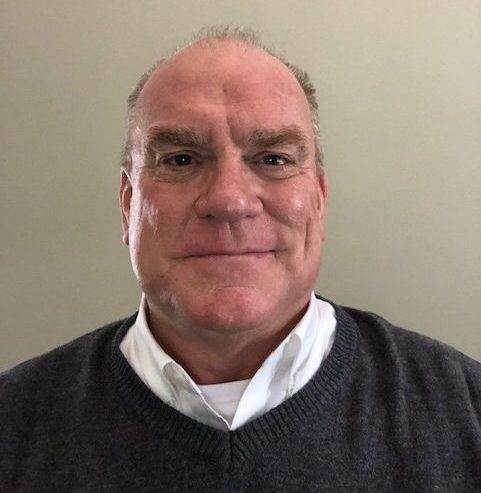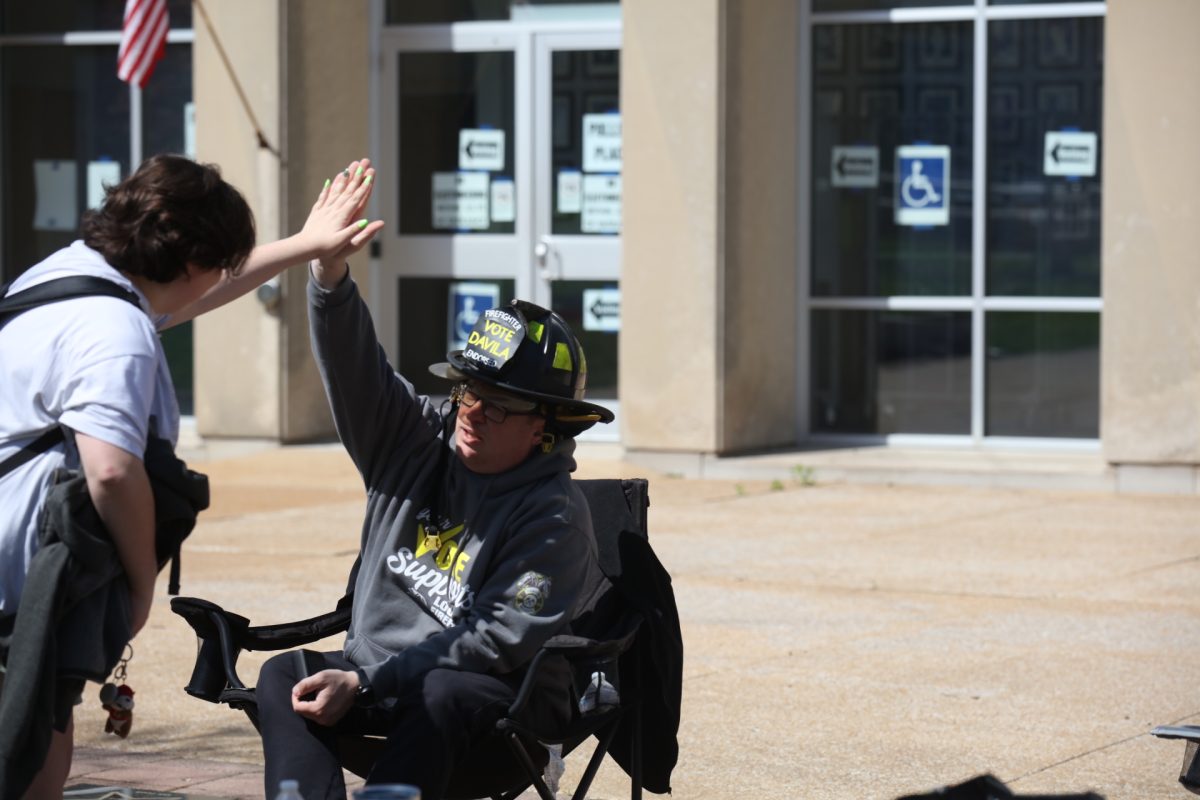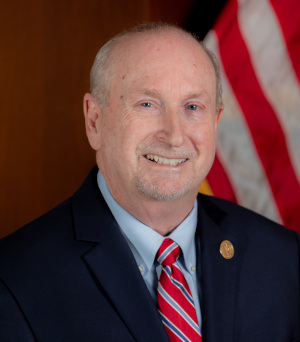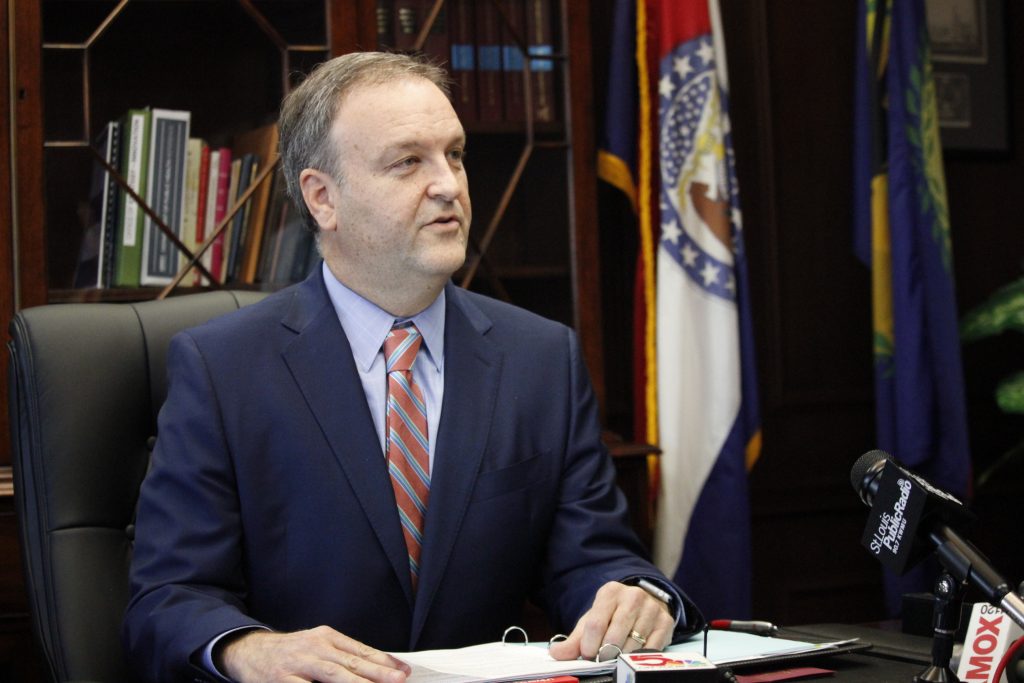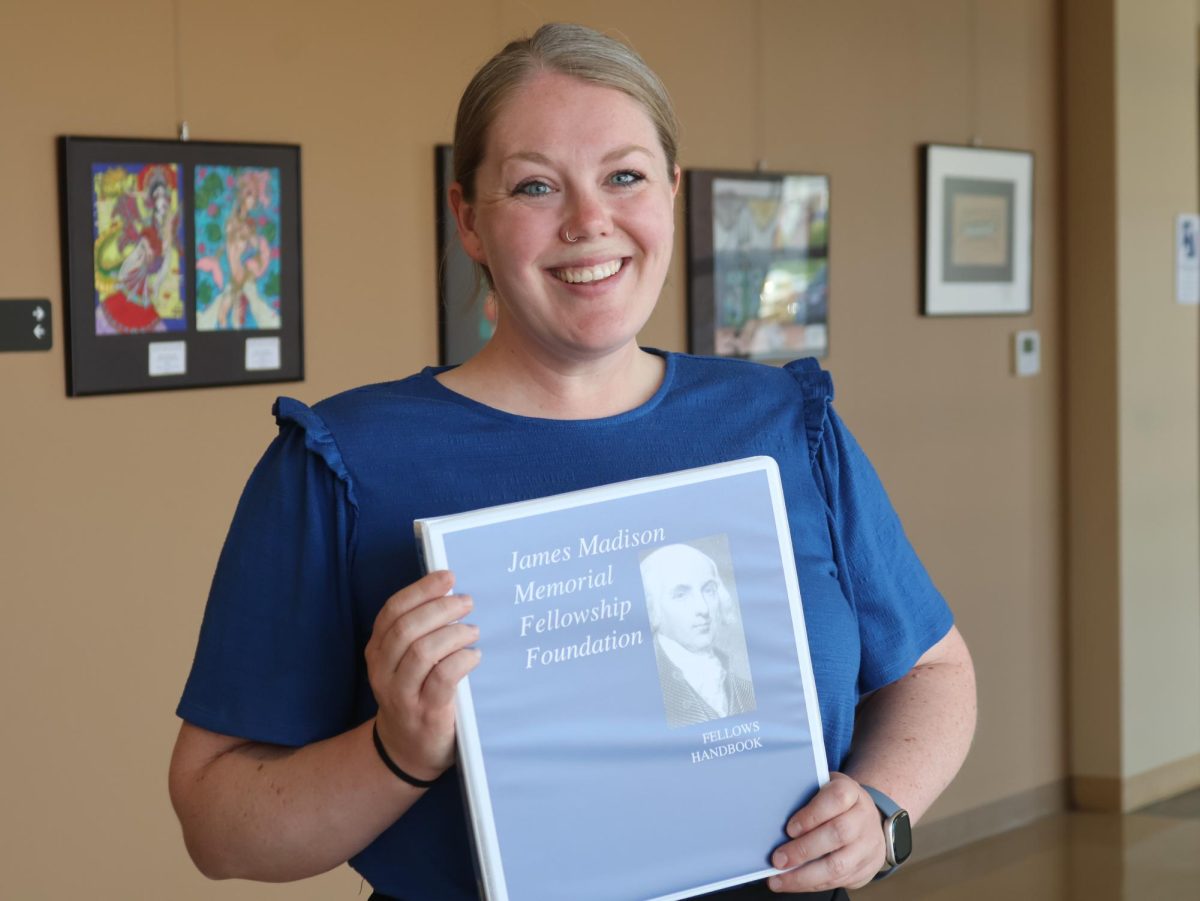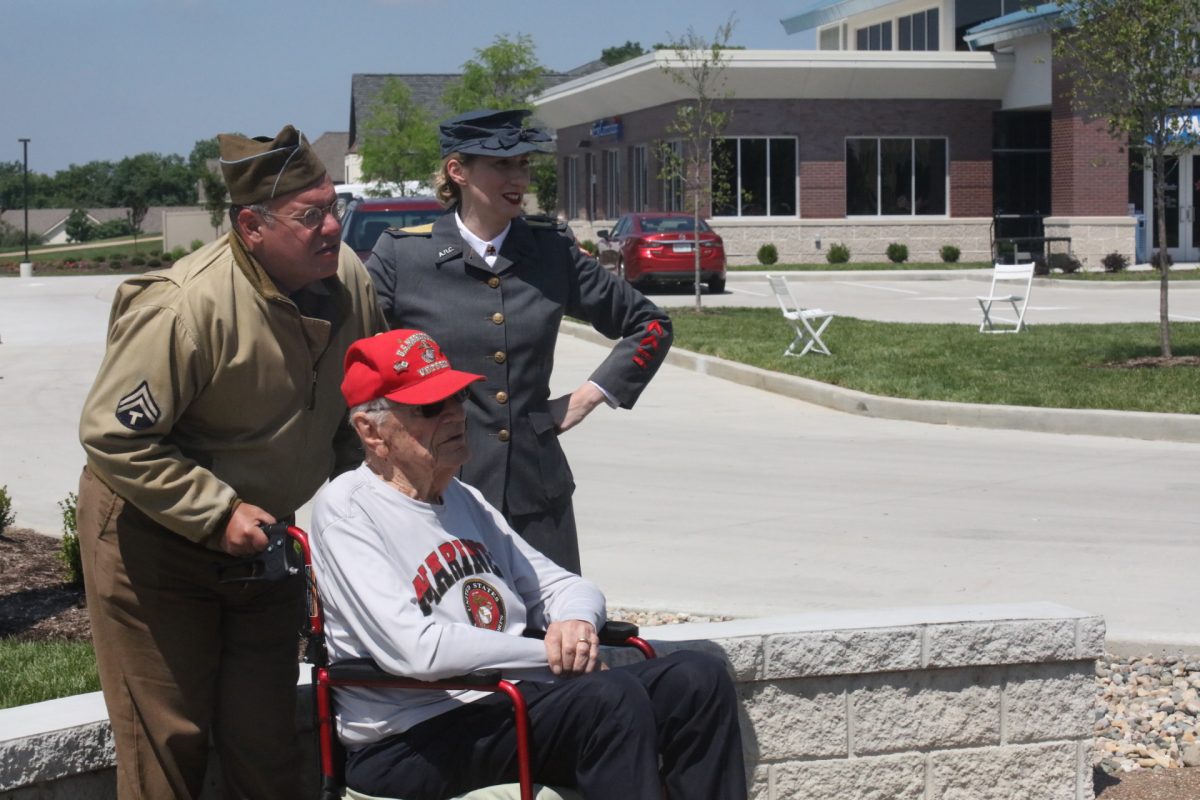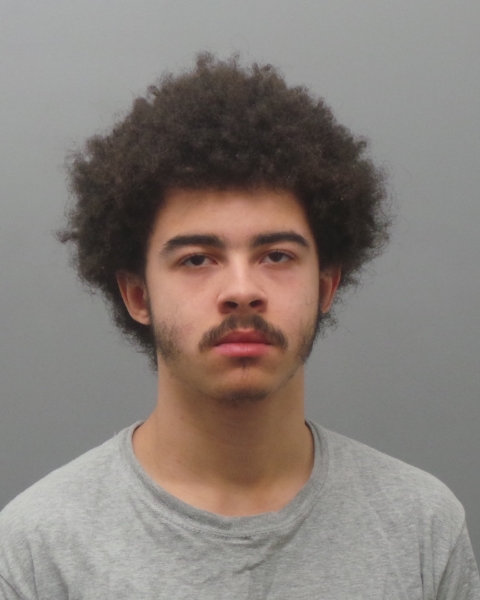A top commander in the St. Louis County Police Department, Lt. Col. Troy Doyle, filed a federal racial discrimination complaint ahead of Tuesday’s election claiming that County Executive Sam Page passed him over as police chief because he is black.
In response, the attorney for St. Louis County alleged that Doyle’s attorney Jerry Dobson tried to extort the county to settle the complaint for $3.5 million in advance of Tuesday’s Democratic primary race for county executive, in which Page defeated three challengers.
Page told The Call, “The police board chooses the police chief. Everyone knows that Col. Doyle was my first choice, they chose someone else and we’re going to move forward.”

Doyle had held key roles in the county department in the last seven years and was a popular choice among members of the public lobbying the county Board of Police Commissioners, which chooses the chief, in the runup to then-Chief Jon Belmar’s retirement April 30. But the board surprised many by voting 5-0 to choose Capt. Mary Barton as the first female chief in the department’s history. In comparison to Doyle’s many public roles in his 27 years with the department and North County, Barton had held lower-profile roles in her 41 years with the department.
Following the pattern taken by Lt. Keith Wildhaber before a jury awarded him $20 million for LGBT discrimination last year, Doyle filed a complaint July 24 with the federal Equal Employment Opportunity Commission and the Missouri Commission on Human Rights. Lodging such a complaint is the first step to filing a discrimination lawsuit, but the complaints are closed records until the EEOC rules on the merit of a claim and whether to allow a lawsuit. The department was previously accused of discrimination by officers and a sergeant represented by Dobson who alleged that a lieutenant had ordered them to racially profile customers at the South County Center mall.
Dobson outlined the complaint to The Call, noting that the complaint is against St. Louis County as a whole, not any individual person. In the complaint, Dobson said that Doyle alleges that although he believes he was the best-qualified candidate for the position, county officials colluded with powerful business interests to pass him over because of his race.
“The essence of our charge is that the police board and/or Sam Page did not select Troy Doyle to be the chief because of Doyle’s race, and that violates the law,” Dobson said. “The residents of the county were very fortunate to have someone of Troy Doyle’s stature and experience and accomplishments who was ready, willing and able to be the chief, and the county tripped over its own feet for someone who clearly lacked the qualifications that Lt. Col. Doyle did. … I will tell you that I don’t know exactly where the discrimination took place (Page or the police board). What I’m confident of is that race was a motivating factor in not selecting Troy Doyle.”
With the depositions and document discovery that would be allowed with a lawsuit, Dobson said he would be able to pinpoint who discriminated against who.
According to the summary from Dobson, Doyle alleges in the complaint that Page told him that the lieutenant colonel was his choice as the next chief as Page sought to replace the board in the wake of the Wildhaber verdict. Page told Doyle that the police board would do what he wanted them to do and even had Doyle meet with his first two announced appointees to the police board, attorney Michelle Schwerin and former Missouri Chief Justice Ray Price, to “make sure they would be consistent with who he wanted as police chief,” Dobson said. The two thought Doyle was “well qualified for the job” and were subsequently appointed to the board, Dobson added.
But in January, according to the complaint, Page told Doyle that he had gotten “pushback from powerful interests” in the business community on the idea of Doyle as chief. Two members of the board of the St. Louis Police Foundation didn’t want a black chief in St. Louis County, Doyle alleges that Page told him. Dobson clarified that the complaint doesn’t allege any wrongdoing by the foundation itself, but two unknown members of its board. Next, according to Doyle’s account, Page told Doyle that the campaigning county executive was having trouble getting large corporate donations, and after Barton was chosen as chief, several large donations came through to Page’s campaign, Dobson said.
Page denied to The Call that campaign donations would influence the decision on a police chief or any other decision: “Absolutely not. My record stands.”
“Sam Page told Troy Doyle that he was getting pushback from powerful interests because of Troy Doyle’s race,” Dobson said, and right after Page said he was having trouble getting donations, the police board chose Barton for chief. “The county has never in its history had a black police chief and they were presented with a golden opportunity to select one, and they did not.”
In a July 22 letter to Doyle, County Counselor Beth Orwick, a former federal prosecutor who is appointed by Page to her post as St. Louis County’s attorney, said that she didn’t see any evidence of discrimination after meeting with Dobson.
“I do not believe you have alleged facts which would support a finding of discrimination against St. Louis County,” Orwick said. “Dr. Page supported Lt. Col. Doyle as his choice for Chief. The Police Board, however, voted unanimously not to promote Lt. Col. Doyle. This was not Dr. Page’s decision, as you are aware, and you have also provided no facts to establish that the Police Board as a group made their decision based upon race.”
Prosecutors refer case for federal investigation
The county released a voicemail Dobson left for Page’s Chief of Staff Winston Calvert in early July in which Dobson said he’d like to meet with Calvert and other county officials to settle the case before the election.
“It is our intent to file before the upcoming primary,” Dobson said, ending with, “I realize we’re operating within a fairly tight time frame as to when the primary is taking place.”
Page won over challengers Mark Mantovani, county Assessor Jake Zimmerman and Jamie Tolliver in the primary Tuesday.
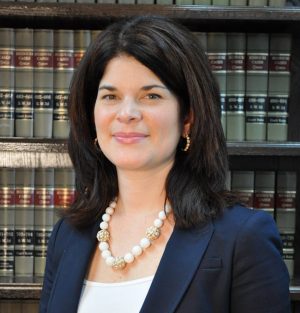
In the July 22 letter, Orwick said Dobson had tried to extort the county by demanding a $3.5 million settlement for Doyle before the election.
“You offered that if the County paid you and your client $3.5 million, you would hide the documents ‘in your desk drawer,’ and that ‘nobody would know’ about the complaint,” Orwick wrote, later adding, “We will not pay money to you or your client in exchange for a scheme designed to threaten embarrassment and disrupt the upcoming election. You have not alleged facts that we believe support a claim of discrimination. If you learn or possess facts that would form a good faith claim on behalf of your client, please let me know and we can discuss them. We will certainly not, however, pay any such money in a secret deal that is hidden from the public like that you proposed. The charge that you drafted seems simply part of a charade that is, by your own admission, intended to interfere with an election.”
Orwick’s office referred the case to county Prosecuting Attorney Wesley Bell, whose office forwarded the documents and voicemail to the U.S. Attorney’s Office. Bell’s Chief of Staff Sam Alton said Monday that Bell’s office had not heard from federal prosecutors about the status of the request.
Dobson said the federal investigation into extortion was an attempt to distract from the racial discrimination claim at the center of the case.
“I categorically deny that I did anything improper, and I think this is an effort by the county to simply deflect and distract from the allegations that are made of discrimination in this case,” Dobson said. “It’s not about me, it’s about Troy Doyle and the county’s failure to select him as chief.”
Dobson said he has been an attorney for 42 years, 38 of those years as an employment attorney in St. Louis, and employment attorneys frequently set deadlines for resolution of cases that will lead to a lawsuit filing if they are not met. Noting the potential federal investigation, the attorney declined to answer why he had specifically mentioned the election in the voicemail. But he said Monday he had not heard from federal authorities.
Police board decision was unanimous; does Page control it?
The police board sang the praises of Barton when it announced her selection in April as chief, but Dobson maintains that Doyle was more qualified for the position because he was a full rank above Barton and had been the county’s go-to leader when things went wrong: He served as the interim chief in Jennings as the county took over that department, played a key role in community policing in Ferguson and had served as interim director of the county Department of Justice Services in the wake of deaths at the county jail, the Justice Center. Just weeks before filing the complaint, Doyle had been named by Page to oversee a top-to-bottom review of the department by consultants.
Earlier, Doyle helped start the Police Athletic League and had also served as the commander of the North County Precinct, which has the highest crime in the county, but crime went down while Doyle was commander, Dobson said.
In a televised county executive debate July 22, Page repeatedly insisted that he doesn’t control the police board and didn’t have anything to do with the selection of Barton.
But to back up the claim that Page said something else privately than he has publicly, Dobson released a 24-second audio recording of Page talking to Doyle.
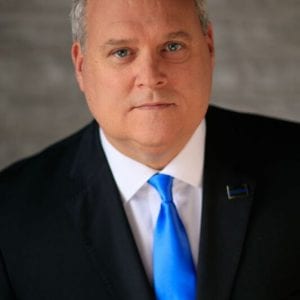
“This police board will do what I tell them to do as long as you tell me it’s the right thing to do,” Page said in the audio.
The county executive said that it was “pretty clear from the time stamp” that the audio was from a date after the police chief had been chosen. He also said, “I did not use the word ‘control’ — that was the political description of my audio.”
But Dobson declined to say when the audio was recorded or what the context of the conversation was.
Former county chief and current 3rd District County Councilman Tim Fitch, R-Fenton, wrote a letter to council Chairwoman Lisa Clancy, D-Maplewood, last week to ask the council to investigate whether Page had interfered in police board decisions in violation of the county Charter, which states that the board should be independent.
As chief, Fitch appointed Doyle to oversee the Jennings department during the county takeover.
Clancy, whose brother Jon Clancy is managing Page’s re-election campaign, replied in a letter that she didn’t want to create dual investigations considering that a federal investigation was potentially underway. She also said the audio of Page and Doyle’s conversation was recorded June 23, months after the vote to hire Barton.
The June 23 timeframe would have placed the conversation more in the context of Page choosing Doyle to oversee the police review.
Fitch responded with another letter to Clancy in which he said that the council had initiated an investigation when Page was chair into then-County Executive Steve Stenger, who was also under federal investigation at the time.




